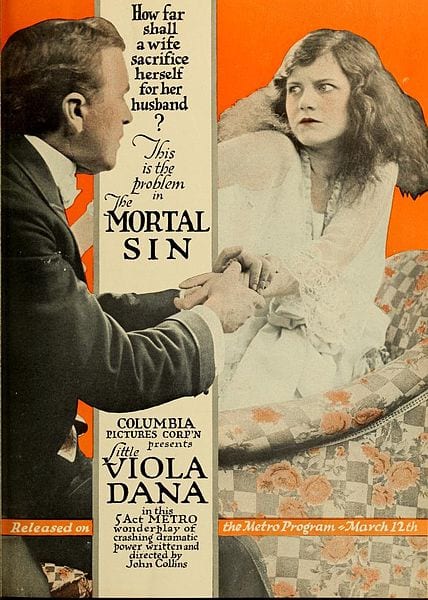
Reformed Baptist anti-Catholic apologist Bishop “Dr.” [???] James White put up a post entitled, Mortal and Venial Sins? (3-4-10). He implied that St. Basil the Great denied the Catholic notion of mortal and venial sins:
Pastor David King, co-author of the three-volume set titled Holy Scripture: The Ground and Pillar of our Faith, has been spending a great deal of time in the years since the publication of that work continuing his work of cataloging patristic citations that are relevant to Rome’s claims and dogmas. He just posted the following in our chat channel:
Basil of Caesarea (AD. 329-379): How are we to deal with those who avoid greater sins but commit small sins regarding them as venial sins? First of all we must know that in the New Testament it is impossible to observe this distinction. For one sentence is passed against all sins, that of the Lord Who said: Every one that committeth sin is the bondservant of sin [Jn 8:34]. —-W. K. L. Clarke, The Ascetic Works of Saint Basil, Translations of Christian Literature Series I, Greek Texts (London: S.P.C.K., 1925), The Shorter Rules, Question & Answer #293 (CCXCIII), pp. 342-343.
There are a few choices here in interpretation. First, it may be that St. Basil the Great had a particular shade of meaning, so as not to deny the categories of mortal and venial sin altogether, or that he later changed his mind. I don’t know. I found the quote in context, but couldn’t make out exactly what he meant. The context did not particularly illuminate his more specific or exact meaning (if there is one to be had).
In any event, we know that St. Basil — however he divides up, or doesn’t distinguish between types and degrees of sins — was a big advocate of confession to a priest, with resulting absolution: a practice (and underlying theology) which is equally anathema to almost all Protestants.
On the other hand, it may be that St. Basil was simply wrong (though further evidences I produce below suggest otherwise). This would (if true) be no surprise or supposed devastating “disproof” of the Catholic view of the Church fathers. We Catholics never held that all, without exception, are infallible, as if their writings are quasi-inspired or specially protected by God in some way different from inspiration. We also don’t believe that any single father is completely infallible. Even the theologians we consider the greatest, were sometimes declared in authoritative, magisterial Church documents, to be in error on certain points.
For example: St. Augustine was in error as regards double predestination, and St. Thomas Aquinas, concerning the Immaculate Conception of Mary. Several Church fathers (mostly in the east) even thought that Mary sinned, and some later became heretics (Tertullian) or held to some seriously heretical views (e.g., Origen on the afterlife: which is why he isn’t St. Origen).
The phrase, used by the Catholic Church: “unanimous consent of the fathers” is widely misunderstood. It doesn’t mean “absolutely every” — as it is commonly used today in general usage, but rather, “consensus of the vast majority” in line with the magisterium of the Church. As I explained in my paper on the topic:
Dictionary meanings for the term unanimity bear out the traditional Catholic theological understanding, too. For example, Roget’s Thesaurus provides the following synonyms for unanimity:
unanimity (520.5; under general category, “Assent”)
like-mindedness, meeting of minds, concurrence, consent, accord, general agreement, consensus, consensus of opinion, general acclamation. [partial list] (New York: Thomas Y. Crowell Co., 3rd edition, 1962, p. 339)
. . . The Latin phrase used in the Catholic Church is unanimem consensum Patrum. Note St. Vincent of Lerins’ famous passage, from the 5th century:
In the Catholic Church itself, all possible care must be taken, that we hold that Faith which has been believed everywhere, always, by all. For that is truly and in the strictest sense ‘Catholic,’ which, as the name itself and the reason of the thing declare, comprehends all universally. This rule we shall observe if we follow universality, antiquity, consent. We shall follow universality if we confess that one Faith to be true, which the whole Church throughout the world confesses; antiquity, if we in no wise depart from those interpretations which it is manifest were notoriously held by our holy ancestors and fathers; consent, in like manner, if in antiquity itself we adhere to the consentient definitions and determinations of all, or at the least of almost all priests and doctors. (Commonitory, 2; my emphasis)
Whether or not St. Basil was wrong, in the sense that an anti-Catholic like White wishes and hopes for him to be wrong (i.e., if he denied the very categories of mortal and venial sin), it seems clear to me that Holy Scripture does indeed teach that these categories exist. Scripture in fact provides several indications of differences in seriousness of sin and also in subjective guiltiness (which is a key component in the Catholic understanding, tying into confession of sin and absolution):
1 John 5:17 (RSV) All wrongdoing is sin, but there is sin which is not mortal (KJV: “not unto death”).
Matthew 5:22 But I say to you that every one who is angry with his brother shall be liable to judgment; whoever insults his brother shall be liable to the council, and whoever says, “You fool!” shall be liable to the hell of fire.
Luke 12:47-48 And that servant who knew his master’s will, but did not make ready or act according to his will, shall receive a severe beating. But he who did not know, and did what deserved a beating, shall receive a light beating. Every one to whom much is given, of him will much be required; and of him to whom men commit much they will demand the more.
Luke 23:34 And Jesus said, “Father, forgive them; for they know not what they do.” . . .
John 9:41 Jesus said to them, “If you were blind, you would have no guilt; but now that you say, ‘We see,’ your guilt remains.”
John 19:11. . . he who delivered me to you has the greater sin.
Acts 17:30 The times of ignorance God overlooked, but now he commands all men everywhere to repent,
Romans 3:25 . . . This was to show God’s righteousness, because in his divine forbearance he had passed over former sins;
1 Timothy 1:13 though I formerly blasphemed and persecuted and insulted him; but I received mercy because I had acted ignorantly in unbelief.
Hebrews 10:26 For if we sin deliberately after receiving the knowledge of the truth, there no longer remains a sacrifice for sins,
James 1:14-15 but each person is tempted when he is lured and enticed by his own desire. [15] Then desire when it has conceived gives birth to sin; and sin when it is full-grown brings forth death.
James 3:1 Let not many of you become teachers, my brethren, for you know that we who teach shall be judged with greater strictness.
Some objectors to these notions bring up James 2:10: “For whoever keeps the whole law but fails in one point has become guilty of all of it.” Does this prove that all sins are the same; equally destructive and worthy of judgment? No; the passage is dealing with man’s inability to keep the entire Law of God: a common theme in Scripture. James accepts differences in degrees of sin and righteousness elsewhere in the same letter, such as 1:14-15 and 3:1 (above).
Furthermore, the Bible provides several lists of sins that are said to prohibit one from entering “the kingdom of heaven”:
1 Corinthians 6:9-10 Do you not know that the unrighteous will not inherit the kingdom of God? Do not be deceived; neither the immoral, nor idolaters, nor adulterers, nor sexual perverts, [10] nor thieves, nor the greedy, nor drunkards, nor revilers, nor robbers will inherit the kingdom of God.
Galatians 5:19-21 Now the works of the flesh are plain: fornication, impurity, licentiousness, [20] idolatry, sorcery, enmity, strife, jealousy, anger, selfishness, dissension, party spirit, [21] envy, drunkenness, carousing, and the like. I warn you, as I warned you before, that those who do such things shall not inherit the kingdom of God.
Ephesians 5:3-6 But fornication and all impurity or covetousness must not even be named among you, as is fitting among saints. [4] Let there be no filthiness, nor silly talk, nor levity, which are not fitting; but instead let there be thanksgiving. [5] Be sure of this, that no fornicator or impure man, or one who is covetous (that is, an idolater), has any inheritance in the kingdom of Christ and of God. [6] Let no one deceive you with empty words, for it is because of these things that the wrath of God comes upon the sons of disobedience. (cf. Gal 1:8; Heb 12:16; Rev 21:8; 22:15).
In other words, such lists presuppose serious distinctions among sins. Otherwise, if Calvinists are correct (and if in fact St. Basil agrees with them on this point), these quite “Catholic” texts seemingly should have stated – without the specificity – “all sins bar one from heaven.” It would be meaningless to provide a lists of all the sins (a, b, c, . . .) that bar one from heaven, if this is the characteristic of each and every sin.
Thus, even if St. Basil was wrong on this point, the many passages from Scripture above clearly differentiate between types and degrees of sin: precisely as in Catholic theology and spirituality. Since Scripture alone is Bishop White’s only infallible authority, he’s in far more of a pickle in explaining away all these inspired passages of God’s written revelation, than we are in interpreting one passage in St. Basil. It’s not problem at all for us, as explained. It’s a huge one, however, for him.
Lastly, St. Basil himself does make distinctions of sins, at least in the sense of our subjective relationship to them, and a differential understanding of culpability (which is part and parcel of the full Catholic view of mortal and venial sins):
Q. 8 Whether the work enjoined by the command is acceptable to God if the manner of performing it is not in conformity with the divine ordinance.
R. We learn the answer to this question, and at the same time a rule, so to speak, for dealing with every question of this sort, from the Old Testament where God says in His own Person, as it were: If rightly thou didst make thy offering, but didst not rightly divide it, thou hast sinned. Peace; his turning is unto thee. These words show that not only is an offering which is improperly made unacceptable, but such an action is imputed as sin to him who has made the offering.
From the simile used by the Apostle we can learn, by a human illustration, as it were, the inviolable rule of piety which Is to be applied in general to all cases. The Apostle says: ‘He also that striveth for the mastery is not crowned except he strive lawfully.’ Moreover, we can adduce and we do it with deeper reverence the rule given by our Lord Jesus Christ Himself when He said: ‘Blessed is that servant whom when his lord shall come, he shall find so doing.’
In using the word ‘so’ the Lord shows that He excludes from His blessing one who does not perform his actions as we can accurately be taught and fully persuaded to do by many stories and sayings in both the Old and New Testament. Not ‘so’ doing means acting inappropriately as regards the place, the time, the person, the matter involved, or in a manner intemperate or disorderly, or with improper dispositions. (Ascetical Works, Vol. 9, Catholic University of America Press, 1950; translated by Sister M. Monica Wagner, pp. 407-408)
I have also found St. Basil referring to “faults” that are “trivial and venial” and “not to the death of thy soul” (Exhortation to Baptism, in Saint Basil Collection, Aeterna Press, 2016, p. 103)
All of this is basically meaningless in the theology and spirituality of most Protestants, who hold that sin is sin, and that (forget or ignore all the Bible passages above!) distinguishing them in this way (let alone confessing to a priest), is of little or no use in theology or the Christian life. In any event, it would strongly appear that St. Basil is far closer to present-day Catholicism in this regard, than any form of Protestantism.
***
***
Photo credit: March 1917 advertisement in Moving Picture World for the American film, The Mortal Sin (1917) [public domain / Wikimedia Commons]
***













